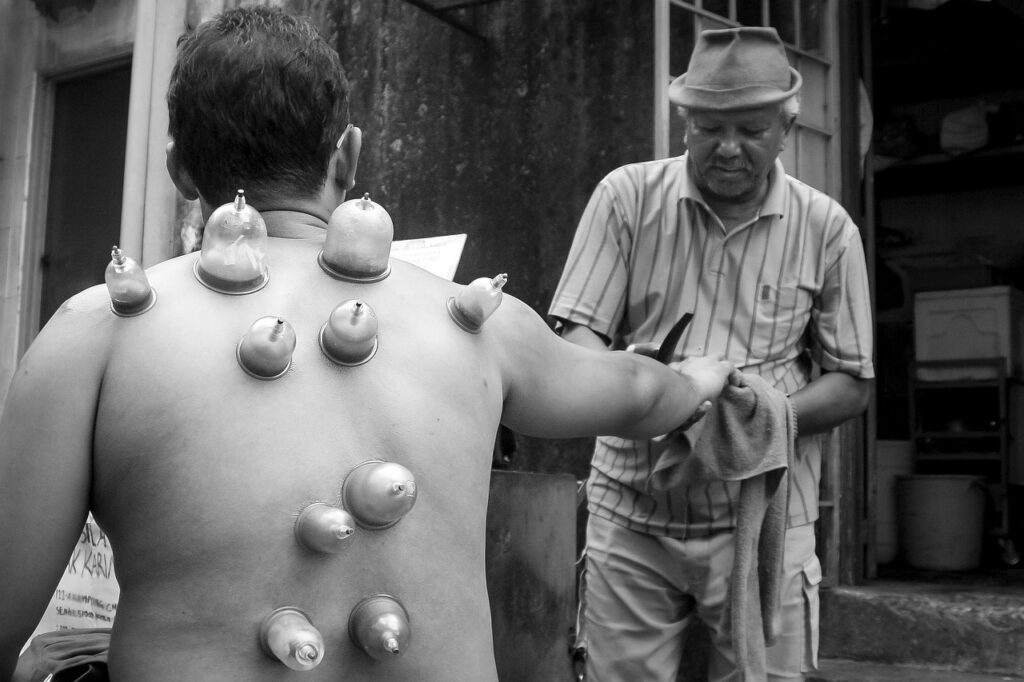



This image is property of pixabay.com.
Are you reaching the milestone of 50 years old and curious about the changes that lie ahead for your body? In this intriguing article, we explore the fascinating transformations that men’s bodies experience after 50.
From changes in hormone levels to alterations in muscle mass and metabolism, we delve into the complex and incredible journey that aging men embark upon. Discover how your body adapts and adjusts in the later years, and gain a greater understanding of the remarkable resilience and strength that it possesses. So, sit back and prepare to uncover the mysteries that await you on this remarkable journey after 50.
Changes in Hormone Levels
Testosterone decline
After the age of 50, men may experience a gradual decline in testosterone levels. Testosterone is the primary male sex hormone and plays a crucial role in various bodily functions. A decline in testosterone can lead to a range of physical and emotional changes.
You may notice a decrease in energy levels, reduced muscle mass, and changes in sexual function, including decreased libido or erectile dysfunction. These changes are a natural part of aging and can vary from person to person.
Increased estrogen levels
Contrary to popular belief, estrogen is not just a hormone present in women. Men also produce estrogen, although in smaller amounts. As men age, their estrogen levels can increase due to various factors such as weight gain and changes in hormone regulation.
This increase in estrogen can contribute to the development of certain health issues and impact overall wellbeing.
However, it is important to note that these changes are usually subtle and not as significant as those experienced by women during menopause.
Impact on sexual function
Changes in hormone levels can affect sexual function in men over 50. As testosterone levels decline, men may experience a decrease in sexual desire and performance. It is not uncommon for men to experience erectile dysfunction or difficulty maintaining an erection.
These changes can sometimes lead to feelings of frustration or low self-esteem. However, it is essential to understand that these changes can be managed through various treatments and lifestyle adjustments.
Speaking openly with a healthcare professional can help you understand your options.
Muscle Mass and Strength
Loss of muscle mass
As men age, there is a natural loss of muscle mass known as sarcopenia. This loss of muscle mass can contribute to a decrease in overall strength and physical performance.
It can also impact daily activities and increase the risk of falls and injuries. Engaging in regular exercise, especially resistance training, can help counteract muscle loss and maintain muscle mass as you age.
Reduction in muscle strength
Along with the loss of muscle mass, there is also a reduction in muscle strength as men enter their 50s and beyond. This can make it harder to perform certain tasks that were once effortless.
Regular strength training exercises, such as lifting weights or doing bodyweight exercises, can help maintain and improve muscle strength, promoting independence and overall quality of life.
Importance of exercise
Exercise becomes even more crucial as you age. Engaging in regular physical activity has numerous benefits for older men. It can help maintain muscle mass, increase bone density, improve cardiovascular health, and promote overall wellbeing.
Aim for a combination of aerobic exercise, such as brisk walking or swimming, as well as strength training exercises to reap the maximum benefits. Remember, it’s never too late to start exercising, and even small changes can make a significant difference in your health.
Bone Density and Osteoporosis
Reduced bone density
As men age, bone density gradually decreases, making the bones more fragile and prone to fractures. This decrease in bone density, known as osteopenia, can lead to a higher risk of developing osteoporosis, a condition characterized by weak and brittle bones.
It is important to take steps to maintain bone health and minimize the risk of fractures as you age.
Higher risk of osteoporosis
While osteoporosis is more commonly associated with women, men are also at risk, especially after the age of 50. Factors such as decreased testosterone levels, sedentary lifestyle, and certain medical conditions can contribute to the development of osteoporosis in men.
Maintaining a balanced diet rich in calcium and vitamin D, along with regular weight-bearing exercises, can help improve bone density and decrease the risk of fractures.
Prevention and management strategies
To maintain and improve bone density, it is crucial to incorporate weight-bearing exercises into your routine. These exercises, such as jogging, dancing, or jumping rope, help stimulate bone growth and strengthen the bones.
Additionally, ensuring an adequate intake of calcium and vitamin D through diet or supplements can support bone health. Speak with your healthcare provider about screening tests, like a bone density scan, and discuss any available treatment options if necessary.
Metabolism and Weight Gain
Slower metabolic rate
One common change that occurs in men’s bodies after the age of 50 is a slower metabolic rate. This means that the body burns calories at a slower pace, making weight management more challenging.
It is important to adjust your dietary habits and exercise routine to accommodate these changes and prevent unwanted weight gain.
Increased abdominal fat
Another physical change that many men experience after 50 is an increase in abdominal fat. This excess weight around the waistline, often referred to as visceral fat, can increase the risk of various health conditions, including heart disease and type 2 diabetes.
Incorporating regular exercise, specifically cardio workouts and strength training, along with a healthy diet, can help reduce abdominal fat and support overall health.
Implications for overall health


This image is property of pixabay.com.
Weight gain and changes in metabolism can have significant implications for overall health. It is important to maintain a healthy weight to reduce the risk of chronic diseases and improve overall wellbeing.
Making lifestyle changes such as engaging in regular physical activity, adopting a balanced diet, and managing stress levels can positively impact both physical and mental health outcomes.
Cardiovascular Health
Higher risk of heart disease
As men age, the risk of developing heart disease increases. Factors such as high blood pressure, high cholesterol levels, and a sedentary lifestyle can contribute to the development of cardiovascular issues.
It is crucial to make heart-healthy choices to reduce the risk of heart disease and maintain optimal cardiovascular health.
Elevated cholesterol levels
Another change that commonly occurs in men’s bodies after 50 is an increase in cholesterol levels. High cholesterol levels can lead to the formation of plaques in the arteries, restricting blood flow and increasing the risk of heart disease and stroke.
Monitoring cholesterol levels through regular check-ups and adopting a heart-healthy diet, low in saturated and trans fats, can help manage and regulate cholesterol levels.
Recommendations for heart health
To maintain cardiovascular health, it is important to adopt lifestyle habits that support heart health. Regular aerobic exercise, such as walking, cycling, or swimming, can help strengthen the heart and improve blood circulation.
Additionally, consuming a diet rich in fruits, vegetables, whole grains, and lean proteins, while limiting processed foods and sugary drinks, can have positive effects on heart health. Regular check-ups with your healthcare provider can help monitor your blood pressure and cholesterol levels and detect any potential issues early on.
Prostate Health
Enlarged prostate (BPH)
As men age, the prostate gland often begins to increase in size, a condition known as benign prostatic hyperplasia (BPH). BPH can cause urinary symptoms such as frequent urination, weak urine flow, or difficulty emptying the bladder completely.
While BPH is a common occurrence and usually not a cause for concern, it is important to monitor and manage any symptoms that may arise.
Increased risk of prostate cancer
In addition to BPH, men over 50 also face an increased risk of developing prostate cancer. Regular screening tests, such as a prostate-specific antigen (PSA) blood test and a digital rectal examination (DRE), can help detect prostate cancer early.
Discussing the potential benefits and risks of screening with your healthcare provider is essential in making informed decisions about your prostate health.
Screening and treatment options


This image is property of pixabay.com.
Regular prostate cancer screenings are essential for men over 50, as early detection can vastly improve treatment outcomes. Treatment options for prostate cancer can vary and may include surgery, radiation therapy, or hormone therapy.
It is important to discuss the available options with healthcare professionals and make decisions based on individual circumstances, including personal preferences and overall health.
Hair Loss
Thinning hair
Hair thinning is a common occurrence for many men as they age. It often starts with a receding hairline or a thinning crown and can gradually progress over time.
While hair loss can be attributed to various factors, including genetics and hormonal changes, it is a normal part of the aging process. Understanding the causes of hair loss and available treatments can help manage any concerns.
Baldness (Androgenic alopecia)
Androgenic alopecia, commonly known as male pattern baldness, is a genetic condition that affects many men after the age of 50. It typically causes a distinctive pattern of hair loss, characterized by a receding hairline and thinning at the crown.
While there is no cure for androgenic alopecia, there are treatments available, such as minoxidil or finasteride, which may help slow down hair loss or promote regrowth in some individuals.
Available treatments
There is a wide range of treatment options available for hair loss, depending on individual preferences and needs. These options include over-the-counter topical treatments, prescription medications, hair transplant surgery, or wearing hairpieces. It is important to consult with a dermatologist or a hair specialist to determine the most suitable course of action and understand the potential benefits and risks associated with each treatment.
Vision Changes
Presbyopia (age-related farsightedness)
Presbyopia is a common age-related vision change that usually becomes noticeable in the early 40s or 50s. It is characterized by a gradual loss of the ability to focus on near objects due to the hardening of the lenses in the eyes.
This can lead to difficulties in reading small print or seeing close-up objects clearly. If you are experiencing symptoms of presbyopia, consult
an eye care professional who can recommend suitable corrective measures.
Increased risk of eye conditions
As men age, the risk of developing certain eye conditions, such as cataracts, glaucoma, and age-related macular degeneration (AMD), increases. Regular eye examinations become crucial to detect and manage these conditions in their early stages.
Taking steps to protect your eyes, such as wearing sunglasses and staying hydrated, can also contribute to maintaining good eye health as you age.
Routine eye examinations


Regular eye examinations are essential for maintaining optimal vision and detecting potential eye conditions early on. Eye care professionals can assess your vision, check for any signs of eye diseases, and recommend appropriate treatments or corrective measures.
It is important to prioritize eye health and address any concerns promptly to preserve your vision as you age.
Mental Health
Higher risk of depression
Mental health is just as important as physical health, and the risk of depression can increase in men after the age of 50. Factors such as changes in hormone levels, life transitions, or the presence of chronic health conditions can contribute to feelings of sadness or lack of motivation.
It is crucial to recognize the signs of depression and seek support or treatment when needed.
GOBIOTIX Super Greens Powder Review
Impact on cognitive function
As men age, there may be subtle changes in cognitive function, such as memory decline or slower processing speed. While these changes are a normal part of aging, it is important to stay mentally active and engage in activities that challenge the brain.
This can include reading, puzzles, learning new skills, or participating in social activities that stimulate cognitive function.
Seeking support and treatment
If you are experiencing symptoms of depression or noticing changes in cognitive function that significantly impact daily life, it is important to seek support and treatment. Speaking with a mental health professional or counselor can provide guidance and support in managing these changes.
Additionally, maintaining a healthy lifestyle, practicing stress reduction techniques, and staying socially connected can positively impact mental health and overall wellbeing.
Sleep Patterns
Difficulty falling asleep
As men age, changes in hormone levels and other factors can contribute to difficulties falling asleep or staying asleep throughout the night.
Sleep disturbances can have a significant impact on overall wellbeing, affecting energy levels, mood, and cognitive function. Establishing healthy sleep habits and creating a conducive sleep environment can help improve sleep quality.
Kaged Outlive 100 | Organic Superfoods | Greens Powder Review
Sleep apnea
Sleep apnea is a sleep disorder that becomes more prevalent with age. It is characterized by pauses in breathing during sleep, often accompanied by loud snoring or gasping for breath.
Sleep apnea can disrupt sleep patterns and contribute to daytime fatigue and other health issues. It is important to consult a healthcare professional if you suspect you may have sleep apnea, as there are effective treatment options available.
Establishing healthy sleep habits


To improve sleep quality and establish healthy sleep patterns, it is important to prioritize sleep hygiene. This includes maintaining a consistent sleep schedule, creating a comfortable sleep environment, avoiding stimulants such as caffeine close to bedtime, and engaging in relaxation techniques before sleep.
Regular exercise can also promote better sleep quality, but it is best to avoid intense workouts close to bedtime.
In conclusion, as men age, their bodies undergo various changes that can impact multiple aspects of their physical and mental health. Understanding these changes and taking proactive steps to maintain optimal health is essential for leading a fulfilling and healthy life beyond 50.
By staying physically active, prioritizing regular check-ups, seeking support when needed, and embracing healthy lifestyle choices, men can navigate these changes with grace and maintain a high quality of life.







